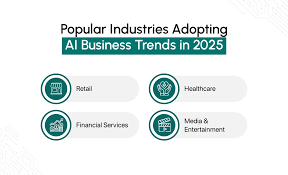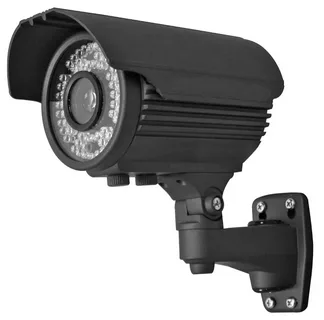How Can IoT and AI Be Used in Energy Management Software Development?

Strong 8k brings an ultra-HD IPTV experience to your living room and your pocket.
In a world facing increasing energy demands and a growing focus on sustainability, the role of technology in optimizing energy consumption has never been more important. Among the most transformative technologies in this space are the Internet of Things (IoT) and Artificial Intelligence (AI). These technologies are revolutionizing how businesses, industries, and households manage energy use. The combination of IoT and AI in custom energy management software development is enabling organizations to gain real-time insights, automate decision-making, and significantly reduce energy costs while supporting environmental goals.
Understanding the Role of IoT in Energy Management
IoT refers to a network of interconnected devices and sensors that can collect and transmit data over the internet. When applied to energy management, IoT devices are used to monitor and control various systems such as lighting, HVAC (heating, ventilation, and air conditioning), machinery, and smart meters.
By integrating IoT into building energy management software, facilities can gather granular data about energy consumption patterns. These sensors continuously monitor temperature, humidity, motion, and energy usage across various sections of a building or industrial site. This real-time data is sent to the central software platform, where it is analyzed and visualized for further action.
The benefit of this system is that users can identify areas of inefficiency, track equipment performance, and receive alerts when unusual consumption patterns occur. For example, if a machine in a factory begins consuming more electricity than normal, the system can detect it immediately and notify the management team.
How AI Enhances Energy Management Through Intelligent Analytics
AI complements IoT by providing advanced data analysis and predictive capabilities. While IoT collects data, AI processes it to generate actionable insights. In energy management, AI algorithms can forecast energy demand, detect anomalies, and even automate control systems based on consumption trends and predictive analytics.
In custom energy management software development, AI is used to create models that learn from historical data. These models can predict peak usage times, suggest energy-saving opportunities, and optimize settings for energy-consuming devices. For example, AI can automatically adjust HVAC settings in a commercial building based on occupancy patterns and weather forecasts to maintain comfort while minimizing energy usage.
AI also plays a crucial role in demand-side management. Utilities and large consumers of electricity can use AI to shift energy usage away from peak demand periods, reducing stress on the grid and lowering energy bills.
Integration of IoT and AI for Smarter Building Energy Management Software
When IoT and AI are integrated into building energy management software, the result is a smart, responsive, and efficient system. This integration allows buildings to become "smart buildings" that can self-regulate energy consumption in real time.
For instance, smart lighting systems equipped with motion detectors and daylight sensors can adjust brightness based on occupancy and natural light levels. AI algorithms analyze usage data to recommend lighting schedules that further reduce energy waste. Similarly, smart thermostats powered by AI can learn user preferences and environmental patterns to optimize heating and cooling systems without human intervention.
Moreover, the integration facilitates predictive maintenance. By continuously monitoring equipment performance through IoT sensors and analyzing trends using AI, the system can predict failures before they occur. This reduces downtime and improves the energy efficiency of machines.
Benefits of Using IoT and AI in Custom Energy Management Software Development
Custom energy management software development tailored to the specific needs of an organization offers significant advantages over off-the-shelf solutions. These tailored platforms provide precise monitoring and control tools that align with a company's infrastructure, energy goals, and operational workflows.
The use of IoT and AI in custom solutions ensures maximum flexibility and scalability. Organizations can integrate their unique equipment and facilities, customize reporting dashboards, and implement energy-saving strategies that are most relevant to their use case. As a result, energy costs are minimized, operational efficiency is improved, and sustainability targets are more achievable.
Additionally, AI-powered analytics in such custom software enables data-driven decision-making. Energy managers can access detailed insights into consumption patterns, carbon emissions, and energy-saving opportunities. This data helps them craft effective energy strategies and make informed investments in energy-efficient technologies.
Choosing the Best Energy Management Software with IoT and AI Capabilities
Selecting the best energy management software depends on various factors including the scale of operations, types of energy systems used, and long-term goals. An ideal solution should offer real-time data collection, AI-driven analytics, user-friendly dashboards, and compatibility with existing systems.
A reliable energy management software development company can help businesses assess their current energy landscape, define their needs, and create a tailored solution that integrates both IoT and AI effectively. These companies typically offer services ranging from system design and integration to ongoing support and software updates.
In today’s competitive business environment, companies that leverage smart energy solutions gain an edge in cost savings, sustainability, and regulatory compliance. With growing pressure to reduce carbon footprints, the implementation of intelligent energy management solutions is becoming a strategic imperative.
Future Trends in IoT and AI for Energy Management
As technology advances, the integration of IoT and AI in energy management software will continue to evolve. Future systems will feature enhanced interoperability, where multiple energy systems—solar panels, wind turbines, battery storage—communicate and coordinate through a central platform.
The use of edge computing, where data is processed closer to the source rather than the cloud, will reduce latency and enable faster decision-making. Additionally, AI models will become more sophisticated, enabling autonomous operations and deeper learning from complex energy data sets.
Governments and environmental agencies are also expected to increase support and incentives for the adoption of AI and IoT-based energy systems, accelerating the transition to smart, sustainable infrastructure worldwide.
Conclusion
The combination of IoT and AI in energy management software development represents a transformative shift in how energy is monitored, managed, and conserved. From smart buildings to industrial automation, these technologies offer unparalleled insights and control over energy usage. By investing in custom energy management software development, businesses can achieve operational efficiency, reduce costs, and meet sustainability targets.
Partnering with a reliable energy management software development company ensures that the solution is tailored to specific needs and optimized for future scalability. As we move towards a more connected and environmentally conscious world, leveraging IoT and AI will be central to building smarter, greener energy ecosystems.
Note: IndiBlogHub features both user-submitted and editorial content. We do not verify third-party contributions. Read our Disclaimer and Privacy Policyfor details.







